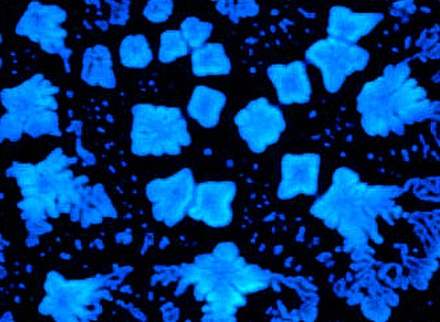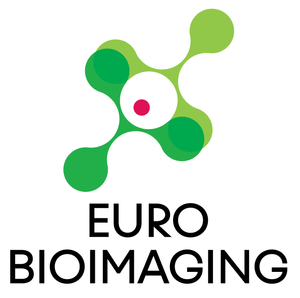
The UK Node of Euro-BioImaging is open and accepting applications!
For more info, please visit https://www.eurobioimaging.eu/nodes/uk-node
History
BioImagingUK ran a national, open consultation on the specification, design and technology domains of Imaging Nodes in the UK. The first community meeting to build engagement and consensus followed by 4 Breakout Sessions happened in April 2020. The second part of this community consultation happened on Tuesday 23rd June using Zoom.
Our goal was to publish a white paper in Q4/2020 detailing community consensus on the number, character, technological specification, ongoing review etc of UK Imaging Nodes. This white paper can be used by UKRI to inform a funding process that respects the UK’s established principles and mechanisms and also to seek funding for Imaging Nodes. The white paper can be found here.
Following a UKRI Call for Identification of Pilot UK Community Access Nodes for Euro-BioImaging in 2021, seven UK sites were chosen to represent the UK Node of Euro-BioImaging that offer open-access to a wide range of advanced biological imaging techniques including correlative, multi-modal, high-content and super-resolution. They are:
- ESRIC (Edinburgh Super Resolution Imaging Consortium)
- York University
- Liverpool University
- Oxford Brookes University
- OCTOPUS at Harwell
- King's College London
- The Francis Crick Institute
To apply for funding to access the UK Node for imaging experiments or image analysis, please look at the User Access Fund.
To stay up to date on this, please sign up to our mailing list.
£1.8M Investment Expands Access to UK Bioimaging Research Infrastructure
Strategic UKRI award to the UK Euro-BioImaging Node boosts imaging access, open science, and industry collaboration
The UK Euro-BioImaging Node has received a £1.8 million strategic award from UKRI-BBSRC and UKRI-MRC to expand access to cutting-edge imaging technologies for UK researchers. This five-year investment will revolutionise how UK life scientists access advanced biological and biomedical imaging facilities, democratising technology that underpins research studies spanning from single-molecule to whole-organism.
Expanding the UK Euro-BioImaging Node
The UK Node has already demonstrated remarkable reach and scientific impact. The 14 facilities spread across 7 UK sites have served over 200 external users and produced 134 scientific publications in 2023 alone. The Node offers an impressive array of advanced imaging technologies, having invested significantly in super-resolution systems, mass spectrometry imaging, functional and live imaging systems, and correlative imaging pipelines. The UK Node has also pioneered innovative training initiatives, creating pathways for young talent to enter microscopy careers either through university or industry apprenticeships.
The new funding will enable significant expansion in two key areas:
- Expanding biological imaging technologies: Increasing the number of biological imaging sites and technologies available, creating improved geographical coverage and technological diversity.
- Incorporating biomedical imaging: For the first time, the UK Node will include both pre-clinical and clinical imaging technologies such as MRI, PET/CT, and other medical imaging modalities.
The expansion plan includes community workshops, open calls for new sites, and thorough evaluation processes in partnership with Euro-BioImaging to ensure the UK Node remains at the forefront of bioimaging service provision. Data services will further be expanded within these bioimaging domains, enabling users to collaborate with talented computational scientists to maximise the potential impact from their research.
Breaking Down Access Barriers
Many researchers experience challenges in accessing state-of-the-art bioimaging technologies because of the high costs and advanced technical skills required to operate and interpret the data. This has created inequalities in access, with many scientists unable to benefit from state-of-the-art technologies needed to answer critical research questions.
This investment will directly address this need by providing the node with dedicated funding to support user access, enabling UK researchers to apply to use both UK-based facilities and the additional 200+ facilities within the Euro-BioImaging portfolio.
Supporting Technical Talent
The talented Research Technology Professionals and Imaging Scientists who operate these advanced bioimaging instruments face significant challenges in accessing funds to advance their knowledge, skills and networks. This is detrimental to their visibility and career progression, with additional negative impact on UK facilities attracting and retaining talent.
The programme allocates funding specifically for UK Node facility staff to attend training, job shadowing, and networking events, increasing skills development and visibility for these professionals. This will enable valuable knowledge exchange and networking for these critical underpinning staff, and engagement with the broader Euro-BioImaging community, creating new opportunities for collaboration and career advancement.
Driving Open Science Through Data Sharing
Open access and FAIR (Findable, Accessible, Interoperable, Reusable) data principles are critical to enable open sharing of all data for onward re-use by the global community. This leads to new computational and AI-based approaches to advance discoveries in bioimaging. Sharing data in the appropriate formats can be complex and time consuming. Currently only a small fraction of bioimaging data is shared with the broader community, limiting reproducibility and potential impacts through reuse.
This investment will support a dedicated Data Steward based at the European Bioinformatics Institute (EMBL-EBI) who will provide training and one-to-one guidance for UK Node users to deposit bioimaging data in appropriate repositories. The Data Steward will further train and upskill UK Node facility staff to support their users in FAIR data, resulting in a step change in open science bioimaging research culture and onward impacts from data re-use.
Increasing Academic-Industry Interactions
There is massive untapped potential to harness the excellent bioimaging technology and technical talent base in the UK to support the commercial sector. This is particularly important for start-ups, spinouts and SMEs who rarely have the budget or skills to undertake complex imaging experiments in-house.
The expanded UK Node will strengthen connections with industry, particularly benefiting in the life sciences and biopharma sectors. Dedicated industry partnering events will showcase the UK Node capabilities, facilitate networking between academic facilities and commercial users with benefits to both sectors whilst boosting UK economic growth and innovation. This engagement will be supported through strong links to the Euro-BioImaging Industry Board, and partnerships including the Royal Microscopical Society, the BioIndustry Association, and ELRIG.
Professor Maddy Parsons (King’s College London), UK Node Lead Investigator and Director of BioImagingUK explained the significance: "This strategic award represents a significant landmark for the UK bioimaging community. The expansion of the UK Node and ringfenced funds for access will open new doors for many researchers, accelerating impactful discoveries across life science domains and strengthening the UK's position as a global leader in bioimaging research".
"Technical staff are crucial to delivery of a successful UK Node," said Dr. Georgina Fletcher, manager of both the UK Node and BioImagingUK. "This funding provides dedicated support for these vital team members, increasing their visibility, skills and networks to benefit their own career progression and the broader UK bioimaging ecosystem".
"The incorporation of biomedical imaging represents a major step forward," said Professor Derek Jones, UK Node Co-Lead and Director of Cardiff University Brain Research Imaging Centre. "The UK is world-leading in several biomedical imaging domains, but access has been limited by both funding constraints and logistical challenges. This award allows the community to tackle these with strong support from the Euro-BioImaging Med-Hub team".
"Open science is fundamental to accelerating discoveries," said Dr. Matthew Hartley, UK Node Co-Lead and BioImage Archive Team Leader from EMBL-EBI. "By providing dedicated support for data sharing, we're helping to ensure that valuable datasets can be reused by the wider community, including for development of new computational approaches and artificial intelligence tools".
“The UK is home to an interconnected ecosystem of research infrastructures” say Dr Tim Shuttleworth, Head of Research Infrastructure at the Biotechnology and Biological Sciences Research Council (BBSRC) and Dr Charlotte Durkin, Head of Molecular and Cellular Medicine at the Medical Research Council (MRC). “This investment will enhance the Node’s reach across the UK’s biological and biomedical imaging communities, fostering a culture of collaboration, shared technical expertise and team science that is inherently connected to international partners through the wider Euro-BioImaging ERIC”.
For researchers interested in learning more about accessing UK Node facilities or the upcoming calls for new sites, information will be available through this website and the BioImagingUK mailing list.
About the UK Euro-BioImaging Node
The current UK Euro-BioImaging Node comprises seven sites: King's College London, OCTOPUS at Harwell, Liverpool, York, ESRIC, Oxford Brookes, and Crick. These facilities offer a range of advanced imaging technologies and expertise to researchers across the UK and internationally.
About Euro-BioImaging
Euro-BioImaging is a European Research Infrastructure for biological and biomedical imaging, providing open access to imaging technologies, training, and data services across Europe. It currently offers global access to 248 facilities across 19 member states, of which the UK is a full member.
About BioImagingUK
BioImagingUK is an open network that brings together the UK bioimaging community, working in synergy with international initiatives to advance imaging research and technology development in the UK.



